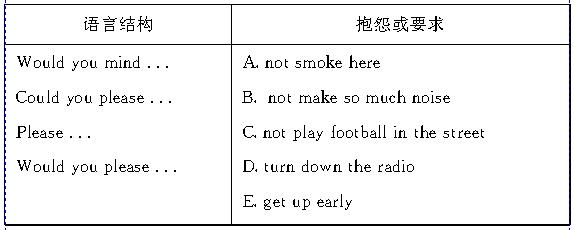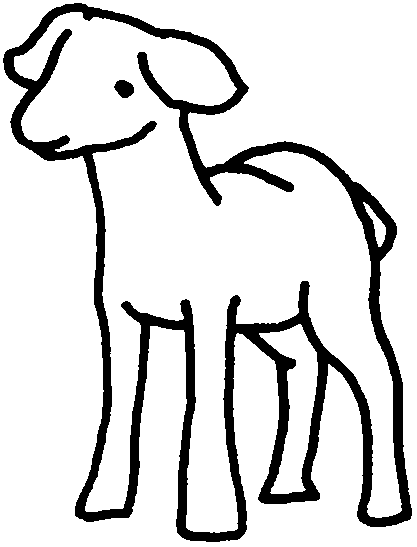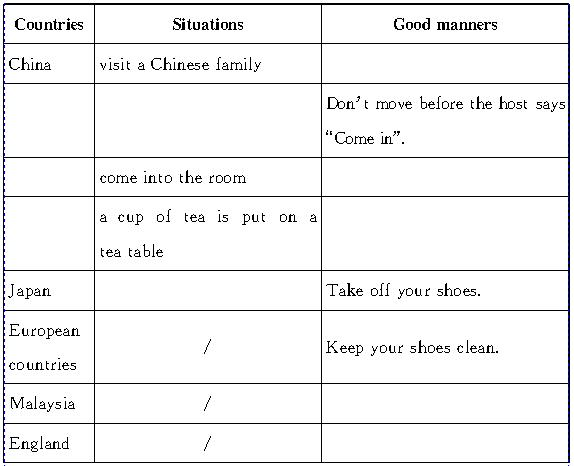一、暑假期间,如果你和你的同伴要去旅游,会去什么地方、做什么事……
请你将下列与这次出行有关的词汇按照所给的要求分类 (把词前的标号写在相应的位置);你还能在每栏内写出一个所学过的单词或短语吗?(10 分)
A. tour guide B. sports show C. amusement park
D. cloudy E. thrillers F. foggy G. hockey H. water park
I. flight attendant J. space museum K. golf L. dry
M. comedies N. businessman O. aquarium P. hair stylist
Q. basketball R. windy S. dramas T. game show
U. waitress V. theater W. football X. humid Y. tennis
二、选择填空 (10 分)
( ) 1. He has been practicing the violin 1999.
A. for B. since C. on D. in
( ) 2. — have you been skating?
— Two hours.
AWhen B.Where CHow many D. How long
( ) 3. — What kind of pet do you want to get?
— A .
A.bracelet B.turtle C.pot D.globe
( ) 4. You don't need to describe her. I her several times.
A. meet B. met
C. have met D. will meet
( ) 5. The students a biology class when the visitors came.
A. had B. were having
C. will have D. are having
( ) 6. Don't worry. I can your dog when you go out.
A. get along with B. say sorry to
C. turn down D. take care of
( ) 7. This idea isn't . Let's think a funnier one.
A. interesting enough B. awful enough
C. enough bad D. enough useful
( ) 8. — Would you mind the yard?
— It's too dirty.
A. clean B. to clean C. cleaning D. cleaned
( ) 9. — The train is late, ?
— Yes, it is.
A. is the train B. isn't the train
C. is it D. isn't it
( ) 10. — Where is your father, Jim?
— He Hong Kong.
A. has gone to B. has been to C. went D. goes
三、连词成句 (5 分)
1. have, how long, you, been, in Beijing, living
?
2. I,never, an, have, Englishspeaking, visited, country
.
3. don't you, baseball, you, games, love
?
4. watch, last, did, you, soap opera, the, night
?
5. a, camera, don't, get, why, you
?
四、你能够谈论自己有什么收藏爱好? 持续了多长时间? 有多少收藏品……(共 10 分)
1. 很多人有收藏物件的爱好,你知道他们一般情况下都收集什么吗?请你把表格中可作为收藏物的物件列在横线上。(5 分)
| cards, amusement park, perfect, cameras, books, history museum, tickets, personal, the Great Wall, scarves, expensive, polite, aquarium, toys, zoos, feed the dog, snow globes, CDs, rabbits |
2. 下面是 Tom 在谈论自己的收藏爱好。请你也谈一下自己或你熟悉的人的收藏爱好。(5 分)
| Tom: I like collecting stamps. I have been collecting them since I was six years old. I have collected 300 stamps. |
I/My
五、人们在生活中难免会有抱怨或要求,如果你遇到这样的情况,怎么才能有礼貌地表示你的抱怨或要求呢?(10 分)
请用下面的语言结构表达你的抱怨或要求。(所给的语言结构都要用上)

六、请任选一题(A)或(B)。(7 分)
(A) 设想如果两个陌生人开始交谈,哪些话题是比较适合的,哪些是不礼貌的,你知道吗?
(在横线上写“P”表示有礼貌;写“I”表示不礼貌)
1. How much did your sweater cost?
2. How old are you?
3. The train is late, isn't it?
4. Are you married?
5. It's really windy today, isn't it? Do you like the weather in Beijing?
6. The baby is so cute. How smart!
7. How big is your apartment?
(B) 在以下情景中你应该怎样说?
|
A. So, what's the weather like there?
B. The bridge isn't very safe, is it?
C. Do you want to go to a concert tonight?
D. Have you ever been to the space museum?
E. Your new house is really nice.
F. What should I get my friend for her birthday?
G. The film was great, wasn't it? |
1. You've just come out of the cinema with a friend. You really enjoyed the film. What do you say?
2. You like someone's new house. What do you say?
3. You want to buy a birthday gift for your friend. But you don't know what to get her. What do you say?
4. You want a friend to go to a concert with you. What do you say?
5. You and your friend are walking over a wooden bridge. It is very old and some parts are broken. What do you say?
6. You want to visit a new place with your friend at this weekend. What do you say?
7. You phone your sister in another city. You ask about the weather. What do you say?
七、很多人喜欢养宠物,对此你有什么看法?(共 30 分)
(A) 请阅读以下四位同学所养宠物的情况,然后根据所给材料填写下列表格。(10 分)
Information About Student A and his Pet

Kind of pet: a dog
Pet's Name: Ajax
How long he has had his pet: 4 years
Where he got it: A pet shop
What he has trained it to do: Catch a ball
Information About Student B and his Pet

Kind of pet: a parrot
Pet's Name: Pete
How long he has had his pet: 10 years
Where he got it: a friend
What he has trained it to do: Say hello and make laughing noises
Information About Student C and her Pet

Kind of pet: a goldfish
Pet's Name: Goldie
How long she has had her pet: 6 months
Where she got it from: a pet shop
What she has trained it to do: Nothing
Information About Student D and her Pet

Kind of pet: She has a lamb
Pet's Name: Lollipop
How long she has had her pet: 3 months
Where she got it from: a farmer. (The lamb's mother died.)
What she has trained it to do: Come when you call its name
|
|
Kind of pet |
Pet's Name |
How long |
Where he/she got it from |
Can ... |
|
Student A |
a dog |
|
|
|
|
|
Student B |
|
Pete |
|
|
say hello,make laughing noises |
|
Student C |
|
|
6 months |
|
|
|
Student D |
|
|
|
a farmer |
|
(B) 如果你想了解这些同学宠物的情况,你可以怎样向他们提问? (10 分)
(what kind, name, how long, where, what... to do)
1.
2.
3.
4.
5.
(C) 这四位同学都是你的好朋友,请你选择其中的一位向大家介绍他/她的宠物。(5 分)
is my friend. He has
(D) 你养宠物吗?对此你有什么看法?(5 分)
(注:本部分是开放作文,你可以自由表达你的观点,但要注意语言的准确性。50 词左右。)
八、阅读理解(共 18 分)
(A)
阅读短文,根据短文内容填写表格。(10 分)
Different countries and different people have different manners. We must find out their customs, so that they will not think us impolite. Here are some examples of things that a person with good manners does or does not do. If you visit a Chinese family you should knock at the door first. When the door opens you will not move before the host says“Come in, please.”After you come into the room you won't sit down until the host asks you to. When a cup of tea is put on a tea table before you or sent to your hand, you will say“Thank you”and receive it with your two hands, or they will think you are not polite. Before coming into the house in Japan it is good manners to take off your shoes. In European countries, if your shoes become very dirty, this is not done. In a Malay house, a guest never finishes the food on the table .He leaves a little to show that he has had enough. In England, a guest always finishes a drink or the food to show that he has enjoyed it. This will make the host very pleased.

(B)
根椐短文内容判断正误 (正确的写 T,错误的写 F)(4 分)
Why does it rain on the road?
A small boy and his father were walking home in the country, when it suddenly began to rain hard. They did not have umbrellas with them, and there was no place to hide from the rain, so they were soon very wet.
For a long while they were walking home through the rain, the boy was thinking. Then at last he turned to his father and said to him,“ Why does it rain, father? It isn't nice, is it?”
“ No, it isn't very nice, but it's very useful, Tom,”answered his father.“ It rains to make the vegetables grow for us, and to make the grass grow for the cows and sheep.”
Tom thought about this for a few seconds, and then he asked,“ Then, why does it rain on the road, too?”
( ) 1. When the father and his son started to walk home, it was raining hard.
( ) 2. They went to a big tree to hide from the rain.
( ) 3. The rain stopped when they got home.
( ) 4. The rain isn't very nice, but it is useful.
(C)
阅读短文,选择正确的答案。(4 分)
A woman was collecting money for a church charity. The money she collected was going to be given to poor children who had no parents to take care of them.
She went from apartment to apartment and from house to house. She knocked on doors and asked for money. She always said the same thing.“Good morning, I'm collecting for a church charity. Please give generously. We need $5,000.”Then she held out a collecting box. Most people put a few coins in the box.
An artist lived in one of the apartments. He opened the door to her.“Good morning,”she said,“I'm collecting for a church charity. Please give generously. We need $ 5,000.”The artist thought for a moment, then he said,“I’m sorry, but I don't have any money. However, I'll give you a painting. It's worth $400.”The woman thanked the artist and took the painting away.
A week later she called on him again.“I'm sorry to trouble you again,”she said,“but we still need more money. I need another $ 100. Can you help?”“Of course,”the artist said.“I'll increase the value of my painting to $ 500.”
( ) 1. Who was the woman collecting money for?
A. Poor children. B. Herself.
C. Her friends. D. A church.
( ) 2. What did most people give her?
A. A lot of money. B. A few dollars.
C. Paintings. D. Very little money.
( ) 3. Why didn't the artist give money to her?
A. He was not a generous man.
B. He did not have any money.
C. He had too many paintings.
D. His paintings were worth a lot of money.
( ) 4. How did the artist help the woman to get another $ 100?
A. He gave her some more money.
B. He gave her another painting.
C. He gave her a more valuable painting.
D. He told her to add $ 100 to the value of his painting.